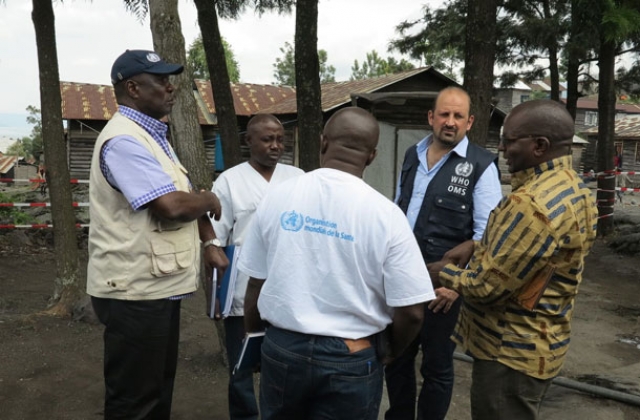Supporting the delivery of healthcare in the Democratic Republic of the Congo
 The Democratic Republic of the Congo is a country perpetually in crisis due to a mix of conflict, disease outbreaks, natural disasters and nutritional crises. Some 7.5 million people need humanitarian assistance and protection in one of the world’s most challenging places to operate. Currently 1.6 million people are displaced, about 4.5 million people are food insecure, and nearly half of all children under five years old suffer from chronic malnutrition. An estimated 80% of internally displaced persons and refugees have limited access to health care.
The Democratic Republic of the Congo is a country perpetually in crisis due to a mix of conflict, disease outbreaks, natural disasters and nutritional crises. Some 7.5 million people need humanitarian assistance and protection in one of the world’s most challenging places to operate. Currently 1.6 million people are displaced, about 4.5 million people are food insecure, and nearly half of all children under five years old suffer from chronic malnutrition. An estimated 80% of internally displaced persons and refugees have limited access to health care.
A Health Cluster typically brings together a diverse set of national and international partners to work in a coordinated way for the more timely, predictable, effective and efficient delivery of health services to people in need during an emergency. In the Democratic Republic of the Congo, as in most crisis-affected countries, the Health Cluster is co-coordinated by the Ministry of Health and the World Health Organization (WHO).
“The Health Cluster is a vital collaboration of different partners delivering key health services to save lives among people affected by the crisis in the Democratic Republic of the Congo,” said Dr Ernest Dabire, WHO Health Cluster Coordinator for DRC. “We face many obstacles in one of the most challenging countries to operate in, but continue to try and help as many people as we feasibly can with the limited resources we have.”
The Health Cluster in the Democratic Republic of the Congo includes 49 partners, who together aim to reach and assist 6 million people in 2016, including 3.9 million people at risk of cholera; 670 000 people at risk of measles; 40 000 people at risk of viral haemorrhagic fever; 80 000 people at risk of medical complications related to malnutrition and 1.1 million people without basic health care.
Dr Ahmed Zouiten, Global Health Cluster Medical Officer, recently visited the Democratic Republic of the Congo (DRC) to support a performance evaluation of Health Cluster coordination and to take stock of successes and remaining challenges that Health Cluster partners face in delivering health care in DRC. Traveling with Dr Dabire, Dr Zouiten’s trip included visits to Kinshasa, Katanga and North Kivu provinces.


